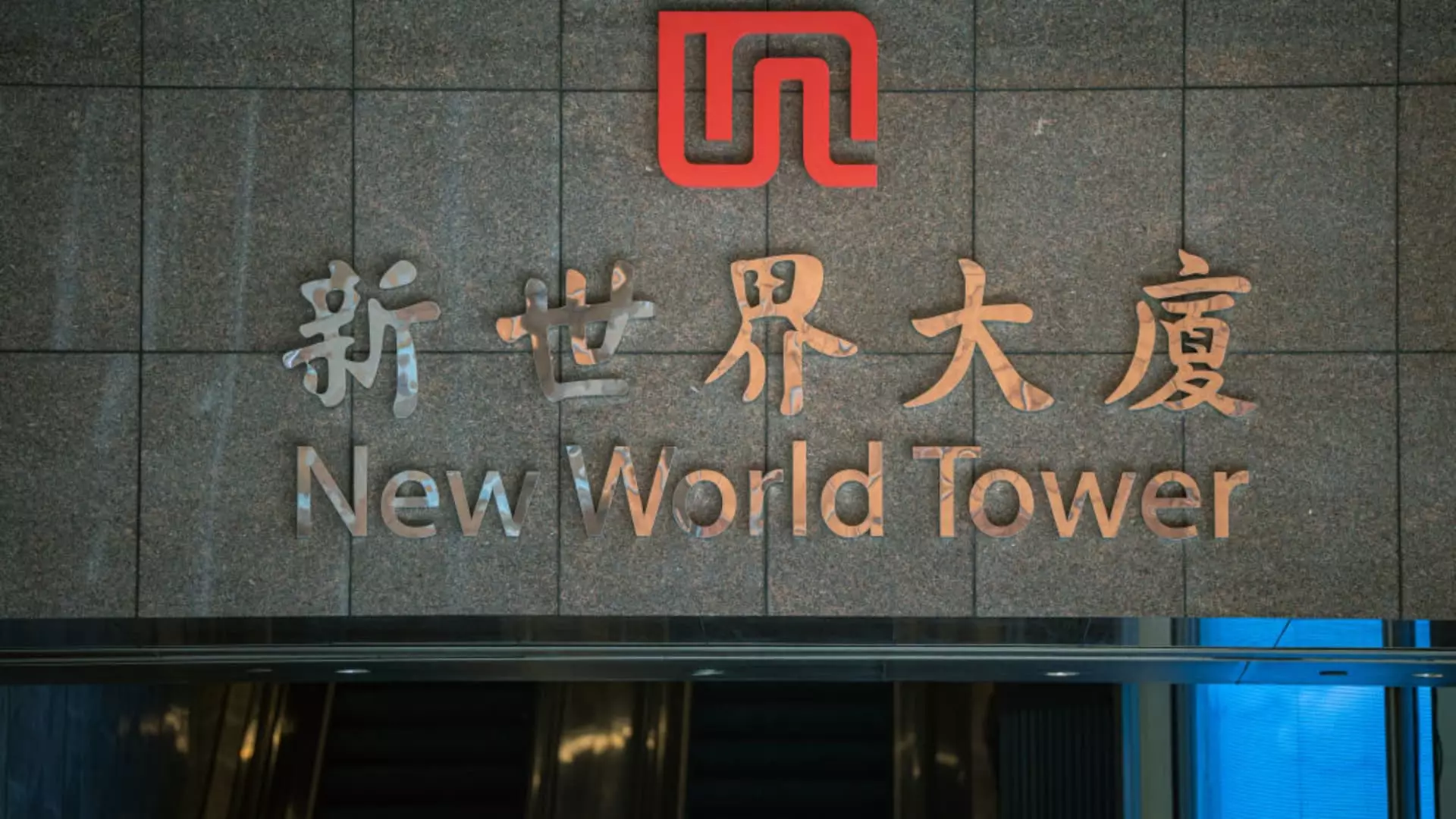The unexpected resignation of Adrian Cheng from New World Development has produced a notable shift in the company’s dynamics, subsequently leading to a significant increase in its stock prices. Following the announcement, shares traded on the Hong Kong Stock Exchange surged by 23%. This rise did not just suggest a transient market reaction; it hinted at the underlying investor sentiments regarding the leadership changes within the firm. Cheng’s exit, earmarked as a move towards personal commitments and public service, paves the way for Eric Ma Siu-Cheung to step into the CEO role. This transition marks a noteworthy moment in corporate governance, as it breaks with the tradition of leadership being kept within the founding family.
New World Development’s recent struggles are symptomatic of a larger crisis affecting Hong Kong’s property market. Investors have become increasingly wary as the company cited an anticipated loss attributable to shareholders reaching between HK $19 billion ($2.4 billion) and HK $20 billion ($2.6 billion) for the fiscal year ending in June. This financial setback reflects the looming challenges posed by declining sales, significant investment losses, and high impairment charges. The company’s situation mirrors the broader adversities faced by property developers in Hong Kong and mainland China, characterized by elevated debt levels and a hysteresis of stagnant growth.
The recent changes in management have sparked discussions about corporate governance in Asia, particularly within family-owned businesses. Experts point out that the reliance on family legacies, where leadership roles are primarily passed down to relatives, can undermine a company’s adaptability in times of economic duress. Alicia Garcia-Herrero, an economist at Natixis, emphasized the importance of robust management practices, advocating that in challenging markets, effective governance becomes paramount to sustaining performance. The move to appoint an outsider like Ma signifies a potential shift in this paradigm, aligning more with industry standards that prioritize competency over lineage.
Stimulus Measures and Market Recovery
In the midst of these leadership transitions and corporate challenges, external factors have set a favorable backdrop for market recovery. Recent stimulus measures from China have injected optimism into the Hong Kong equity markets, contributing to the rally in New World’s shares. The government’s commitment to buttressing the real estate sector with enhanced fiscal and monetary support serves as a potential lifeline. This bolstered confidence from Chinese authorities can create a conducive environment for recovery, alleviating some of the pressures that have beset the real estate market.
The path forward for New World Development remains precarious, nestled within a landscape of economic uncertainty and shifting governance structures. While the stock surge indicates a positive reception to the leadership changes and government relief, the true test will be the company’s ability to navigate through financial adversities while transforming governance practices. As New World embarks on this new chapter, the focus will inevitably shift to how effectively it can adapt to the challenges of a fluctuating real estate market while ensuring that its corporate governance structures support resilient growth.

Leave a Reply